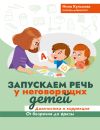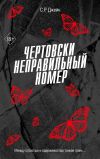Текст книги "Shinie’s Ritual"

Автор книги: Natalia Afanaseva
Жанр: Современная русская литература, Современная проза
Возрастные ограничения: +16
сообщить о неприемлемом содержимом
Текущая страница: 4 (всего у книги 4 страниц)
Neoteric Medicine

– 1 —
Professor Annabel Grunder was rushing to work. No, she was not pushing on the throttle and she had not drunk instant coffee instead of brewed one, since that would only be the case if she was really late. She was just in a hurry. If somebody stopped her to discuss weather, he or she would be pretty much surprised: mentally, Annabel was already sitting in her office. Most likely, she would have responded randomly or stammered out a couple of indistinct phrases.
On moments like this Annabel could well be mistaken for an insane person, but for her flawless appearance. And it presented her in the shape, which she actually strove to demonstrate. Her clothes, hairstyle and jewellery were strongly indicative of success in business. It was not for nothing that the pool of private investors, which included international mega-corporations, had trusted no less a person than Frau Grunder to manage Germany’s biggest psychiatric hospital.
It was there that big heads of psychiatry had gathered under her leadership. Some of them were as tough in communications as their patients, but Frau Grunder was capable of building truly effective teams.
However… the opportunities were almost boundless. All cutting-edge solutions, which had budded within the walls of her hospital, would materialize and be tested here too. Many of those were launched and managed under her direct supervision. That was a kind of power a woman could handle. Notwithstanding the commercial success or, to be exact, contrary to the general opinion, Annabel was a brilliant scientist.
The few placing a high value on her managerial talent did in fact understand what that way-up tandem rested on: the primary thing was the knack for science supplemented by her superb business acumen, enabling her to select truly socially oriented projects and, surely, investor-oriented ones as well.
The project she was currently working on was exactly the kind of. It was not before one was far into it that it all its prospects could be highlighted. And now she was in for its most important part – testing and evaluation of its effectiveness.
– 2 —
Annabel ran over her today’s schedule in her mind. In one of the houses on Trisenstrasse, Eiten, a little girl lived, and Professor was to visit her today. Professor’s lab assistants had selected the girl from a large group of patients wanting to join the test group, and it was here – in Eiten – that the whole thing was to be launched.
The girl was an ideal candidate. One of the most tragic family issues – autism – had been detected by her parents way too late. That was a very common situation, Professor sighed. The axiom was, the earlier socialization started, the better it would go and the sooner the child would be able to merge into the society. Of course, an autistic person will never become fully competent. She’d need her loved ones’ care and help for the rest of her life… Well, she was going to the office now, next she’d attend the morning staff conference and, finally, she’d go to Zara.
Zara’s house was not far away. That was another plus for her. While waiting for the green light, Annabel took a pad with the diagnosis page open. Zara Kelebeck, five years old. Autistic. Two suicide attempts had taken place before her parents had realized that something was definitely wrong with their child. Certainly, it was an amateur’s way to call it a suicide, so Annabel highlighted the paragraph to later point out the importance of using correct terms to her assistants. Words… Our profession requires extreme caution when using words. Words make up descriptions of diagnosis, and you never know how just one word can affect the little girl’s life. It is hardly possible to suspect a five-year-old patient of an intended suicide attempt.
Professor put the pad aside. During the meeting at the Center, she had discussed the two ‘cases’ – let’s put it this way now – with reference to the girl’s parents. The first ‘case’ opened their eyes to their daughter’s condition. Like many parents did, they had waited for way too long for their child to abandon her individual world and begin to communicate with her peers.
Annabel remembered Alexander – Zara’s father – telling her about their not wanting to face the truth, even though the symptoms had become downright alarming, and their district pediatrician’s echoing and telling stories about children’s individual ways of development.
Annabel did not feel like blaming the parents. It is always hard to accept THIS KIND of reality, particularly in relation to a loved one. But she was determined to have a conversation with the pediatrician. Of course, the girl was in for a lengthy rehabilitation and in a less than comfortable environment, taking into account the tomorrow’s procedure. But they could have started earlier, much earlier.
– 3 —
Annabel Grunder knocked at the door of a grey one-story house with roof covered with clay tile. So obsolete! There were flowerpots in the windows, but only in those on the groundfloor. The first floor was deprived of greenery. The windows were shielded by screens.
Unlike the house itself, Zara’s family was not what was called a traditional German Familie. Her mother and father were Turkish – second generation immigrants. Yes, they were citizens of Germany, but the difference was readily observable; or did the misfortune just leave its imprint? Zara’s mother opened the door to let Professor in, and the grief fluttered from her questioning and wistful eyes right into Professor’s.
“Oh, Pr. Grunder, hello, please, get in,” Zara’s mother would start every second phrase with “Oh”. “Please, come here and go upstairs… Oh, no, no need to. Keep your shoes on here too. Zara? No, Zara goes barefoot. Oh, yes, sure, whatever you say. What about coffee? Zara? Tea. She likes camomile tea. Does she? Ok…”
Finally, Professor entered Zara’s room. Yes, it looked Spartan. All pieces of furniture had cut off corners and were bolted to the floor. Window screens, plush toys, cards in wall pockets and no place to climb upon or jump off from. Both accidents Zara had been through had involved height.
Her mother had lost her vigilance twice, and Zara had climbed up a high thing twice with the goal of jumping off. The first jump resulted in a fracture, and the second time she all but tipped over a barrister on the second story of the local mall, but for somebody catching her just in time.
“Would you like to talk to Zara? We’ve been bracing her up for it for the last two weeks, oh, chances are it’ll be ok.”
“No, Frau Kelebek. I’d like to see myself how she is doing and what she likes to play with. Today, I’m not intent on setting up a contact. We’ll communicate with her tomorrow.”
“Tomorrow? Oh. That’s wonderful. We… we just couldn’t believe.”
“Take it easy, everything will be all right. Tomorrow I’ll have a clearer idea of how we can help your girl. Maybe tomorrow I’ll know how to treat her. In any event, your life won’t be this tough any more.”
“Yes, that’s what we’re expecting! You don’t understand… Lately she breathes in a strange manner – she inhales and holds it for a while… Children’s threshold is high… Our pediatrician says it’s ok, but I’m in despair!”
“Good-bye, Frau Kelebek. See you tomorrow at 11:00 a.m. at the Center.”
Annabel smiled to whittle it down. She had no right to succumb to emotions and that would be the last time ever she was going to give Zara’s mother a chance.
– 4 —
Unhurried and word-weighing by nature, Annabel held her line on that day too:
“Dear participants. Today we are going to accept our first patient – Zara Kelebek. You must have studied her diagnosis and chart in the Patients section. In ten minutes, she will enter this room, and by the time she does only those who have talked to her must be sitting here. The entire strategy has already been scheduled, so I’m not going to repeat. I want you to demonstrate your professionalism, which has paved your way into the team and the project. It promises a breakthrough in treatment of patients like Zara, and bringing the moment, when we can ease the life of autism patients and those caring for them, closer, is within our strength. Well, let’s prepare the site.”
In the cabinet, whose interior maximally mirrored Zara’s room, there was a bed for the girl. Now they were going to have a little game – only the mother and the daughter. Autistic patients’ games rule out any partnership, but all her mother was going to do was just stay with her. Just another familiar interior element. A comforting one.
Then the girl would have a cup of tea with a sedative and fall asleep. It would be the lab assistants’ and Annabel’s turn. Zara would have to be attached to a whole load of cutting-edge medical equipment. Thousands of electrodes were to detect changes in the girl’s nerve stem; a scanning device was to track the brain’s work, and a mobile analyzer was to monitor chemical reactions taking place in her body. Electrocardiogram, respiratory functions and muscular movements – all would be calculated and converted to a common digital format.
However, it was all about the device developed by Annabel Grunder and her team. That would be a capsule embracing the bed with the little patient lying in it when she was fast asleep. The INC (Interpreting Neuron Center) would reconstruct in the recipient’s (Anabel’s) brain whatever the girl would see, and would let her experience what the young patient would be experiencing, and make a step toward understanding what makes an autistic person perceive the world as he or she perceives, the absence of reaction to external stimuli and… At the moment, Annabel did not want to take long shots at all.
Well, imagine the whole spectrum of opportunities just for a minute… She, an infinitely experienced psychiatry professor, was hoping to discern a mechanism, which was to be launched by no other method than chemical and, possibly, electric stimulation, to help the autistic to establish a contact with the outer world. The mechanism, which would help them join the society, become its fully-fledged members, find a job, start a family – generally, live life to the fullest instead of living a life of a butterfly mummy hiding from the world in a cocoon.
– 5 —
Finally, Zara fell asleep. The sleep was expected to be deep, and they had at least two hours. Professor was not intent on extending the first session to longer than 10—15 minutes anyway. The lab assistant promptly tuned the equipment, and the much longed-for moment came: Annabel put on the receiver helmet. She had already got the sensualization suit on. It was laden with sensors so hard that Annabel would not dare move her hand. Her associates helped her to get into the capsule.
Quietness filled the room, as everybody except the equipment maintenance team had left, and those remaining had been warned about absolute impermissibility of any noise. Everybody was on the alert.
The plunging was gradual. That had been deliberate, and there were two reasons for that. First, that was a kind of experiment never held before, and it was imperative that sense transfer systems be tested one by one. Second, nobody could tell what exactly the recipient would feel, and the researchers were fairly concerned about the possibility of a shock.
Finally, all systems were smoothly connected. Annabel still could not feel anything, but she could maintain control of all her feelings, so that she could recognize the first one, which would be the patient’s, not hers. However, nothing was happening. Minutes and scores of minutes passed, and neither the equipment nor the woman’s feelings would show any activity.
Upon an agreed sign, the lab assistants launched a reconnection procedure. All devices were reconnected one by one, but there was no effect.
Annabel sighed. It was time to end the procedure; although there had been no effect, the girl began to wake up. Her eyelashes trembled, and she moved.
Had they made a mistake? How could they have supposed that the girl’s brain would have remained dormant all the way through her sleep? They had not made an encephalogram during her sleep, since, considering her diagnosis, that would be extremely difficult; but they could not have imagined that Zara’s brain would have shown zero activity.
Annabel was still trying to detect at least something. Just one little flash, emotion, physical or chemical influence – even a little thing like that could be a breakthrough. Nothing came. It was time to make a decision.
What a pity! What a goddamn pity! She had hoped that she could help the girl, but… now the little patient was in for nothing but dull existence. There is no help doctors can provide for the autistic.
“Now”, Annabel repeatedly told herself checking her feelings over and over again. She could almost physically feel the glances of her colleagues who were expecting a signal from her. Even though nobody had touched her hand yet, that was a conditioned signal that it was ten minutes before the test was over, and Annabel’s biological clock was signaling the approaching end of the experiment.
Quite unexpectedly, Zara opened her eyes. The lab assistants who were within the experiment zone saw that. Annabel saw a completely different thing.
– 6 —
A stream of data came pouring down on the woman. First, she could not understand what was happening to her, as it was the first time in her life she was experiencing such a sensation. Her body suddenly felt lightweight and strong, and the air seemed thick and warm. She felt like the air was buoying her up, and it was then that Annabel could draw a parallel: one day she had bathed in a saltwater lake and experienced a similar yet not identical sensation.
Professor did realize that her body was still in a comfortable anatomic capsule, but it felt real enough to make her want to resort to a conscious effort to distort the reality with the goal of understanding the girl’s feelings. Regaining her bearings, Annabel took a horizontal position.
The kaleidoscopic tapestry of colored spots began to look more articulate, but was still far from understandable and not fully familiar. All around and, for the most part, below – on the horizontal, right under my feet, Annabel reasoned, a diffuse sea of colored balloons was rolling.
To Annabel, the upper over-the-horizon part of the space looked like some kind of abyss filled with a multitude of vector fields, which alternately pushed and pulled her and sent her spinning down a vortex. At times, she felt like she was gliding over a smooth and ideally polished surface, which formed slopes and slides and felt so warm and so springy.
Sadly, the smell transfer function was very bad. Man-made devices could not decipher the diversity of tints and flavors, which were normally detected by countless nasal receptors, and the range of smells being transferred was very limited. The woman formulated the smell as the scent of roses, and her life experience filled in the gaps left by the technical thought.
Annabel felt the muscles of the ribcage and the abdominal area tighten, so she had to breathe in as much air as she could and hold it. Now the air in her lungs began to get warmer in the sunlight, and she’d be able to fly a little higher and evaluate the perspective. Now! Annabel flipped her wings.
She soared and rushed ahead. No effort on her part was required, since all she did was perceive the little patients’ feelings, as the girl seemed to know how to pilot. Annabel’s body stretched out, she threw back her head, and they began to go up at an even steeper trajectory.
The following five seconds passed in an uninterrupted ascend. The world around them looked like a fabric woven from scents and the warmth of sunlight, which provided a fairly tangible footing for the creature now rising to the face of the sun. Not letting the body indulge in the tranquility of the flight, Annabel exhaled. It was time to touch down, since she seemed to have seen what she had flown to see.
A wave of fragrance rushed over her when she landed on a large double tuberose. Her heels could feel the solid and cool silk of the petals, and then she dipped her proboscis into the middle of the flower.
The equipment was not capable to render the taste with due precision, and the sense had been turned down as irrelevant. Annabel had no more than a hunch on what the liquid she was drinking tasted like. Nevertheless, her brain did receive a signal of satisfaction. One more second, and up in the air she rose again. High up in the air into the realm of warmth… but not light.
The picture faded from Anabel’s brain, so did the sounds – the vague humming and rustle… the last train was caught by the sensation of lightness and warmth, parting with which made her feel unbearably sad. Annabel heard the sound of her capsule being opened by the lab assistants.
– 7 —
She heard voices, which painfully cut into Annabel’s contrast-stricken brain, ask her questions. They sounded definitely agitated, and Annabel made an effort to focus on her colleagues’ words.
“Professor, are you all right?”
“Yes, I’m all right. Please, let me regain my senses. How’s Zara doing?”
“She’s ok, her mother has already gotten her out of the INC.”
“What was the time span between her wake-up and the switching off of the last device? Approximately?”
“We disconnected you almost instantly, but it took more than a minute anyway, we could not have done it earlier.”
“Well, ok, please, help me get out of here. I should see Zara. I’ll answer your questions later. Have you recorded it?”
“Yes, we have! That was quite a load of information…” several voices sounded simultaneously.
“Ok, later.”
Annabel walked up to Zara, who was sitting in her mother’s lap and staring vacantly at the wall.
“Frau Kelebek. How’s your daughter doing?”
“Oh, I have no idea… just as usual. Even if she does feel bad, she won’t tell you. Do you understand it?”
“Yes, I do…”
Professor stared at Zara, looking away from her mother, who did eventually catch and hold Annabel’s eye. The concealed pain was still there.
“Professor, you already know how to treat Zara, don’t you? What are your recommendations?”
“It is too early to speak about that,” Annabel used her stock phrase, but, remembering the sensations she had experienced minutes before, she changed the direction. “More flowers. Bring as many flowers to her room as you can. Make sure that the windows face the yard – you have a front garden there, don’t you? Change your place of residence. Move to the countryside. Take her for a walk, go down by the riverside, bathe…”
Annabel stopped suddenly as she spotted incomprehension in Zara’s mother’s eyes.
“We… thought about drugs, radical methods… about making her happy! Professor?”
Annabel had to sigh before she said what she would never have thought about before:
“Frau Kelebek, you can’t make Zara happier than she is now, I mean it. This is not a medical matter, it’s all human. You know, Zara is happy.”
“And what about me?” she asked herself silently. She turned away from the stunned woman and headed toward her office. She had to make at least some kind of account.
Правообладателям!
Это произведение, предположительно, находится в статусе 'public domain'. Если это не так и размещение материала нарушает чьи-либо права, то сообщите нам об этом.








































